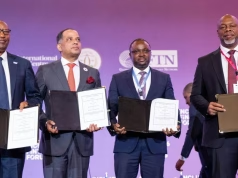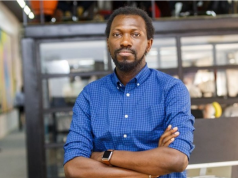Google has committed $37 million to advance artificial intelligence across Africa, marking one of the largest corporate investments in the continent’s AI ecosystem and underscoring growing confidence in African innovation. The funding, directed toward food security, education, language technology, and research, reflects a strategic shift from aid-based models to partnership-driven development that empowers African talent to lead global AI innovation while solving local challenges.
At the heart of the initiative is a $25 million allocation for the AI Collaborative Food Security Initiative, designed to support African developers and agritech startups in building intelligent systems tailored to the continent’s diverse farming environments. By leveraging AI for hunger forecasting, climate-resilient crop modeling, and precision agriculture, the program aims to transform smallholder productivity and strengthen regional food systems. Crucially, it positions African farmers not as passive beneficiaries but as central innovators in sustainable agriculture—building on generations of indigenous knowledge enhanced by digital tools.
Complementing this is a $7 million investment in AI education across Nigeria, Kenya, Ghana, and South Africa, where Google will provide 100,000 Career Certificate scholarships in high-demand tech fields. These programs are expected to equip African youth with skills in machine learning, data science, and AI development, accelerating the continent’s transition from technology consumer to creator. With some of Africa’s most vibrant tech ecosystems concentrated in these countries, the move could catalyze a new wave of homegrown startups capable of competing on the global stage.
A further $3 million has been pledged to the Masakhane African Languages AI Hub, supporting the inclusion of over 40 indigenous African languages in AI training datasets. This effort addresses a long-standing gap in natural language processing, where global models have historically excluded African linguistic diversity. By digitizing and preserving languages such as Yoruba, Swahili, Zulu, and Amharic within AI frameworks, the project not only safeguards cultural heritage but also advances multilingual AI—a critical frontier for inclusive technology.
Additionally, $1 million in research grants will be awarded to leading African institutions, including the University of Pretoria’s AfriDSAI and the Wits MIND Institute, to support graduate-level AI research led by African scientists. These centers will focus on developing context-specific solutions—from healthcare diagnostics to environmental monitoring—while contributing African perspectives to global AI ethics, design, and deployment.
The announcement comes amid a broader technological renaissance across Africa, where innovations in fintech, healthtech, and agritech have already demonstrated the continent’s capacity for scalable, user-centered design. Google’s AI investment Africa initiative recognizes that the complex, resource-constrained environments found across the region offer fertile ground for developing resilient, adaptable technologies with global relevance.
Importantly, the strategy moves beyond traditional donor-recipient dynamics, instead emphasizing collaboration, local ownership, and intellectual leadership. African innovators are being positioned not just to adopt AI but to shape its evolution—ensuring that artificial intelligence serves diverse populations and incorporates pluralistic worldviews.
As AI reshapes economies worldwide, this investment affirms Africa’s emerging role as a hub of technological creativity and problem-solving. With sustained support, infrastructure development, and policy alignment, the continent could become a defining force in the next era of intelligent systems—one where African ingenuity helps define the future of AI for all.
Follow us on Instagram.
https://www.instagram.com/businessnewsng?igsh=ZXpweTdjOGF1ZXdu

























